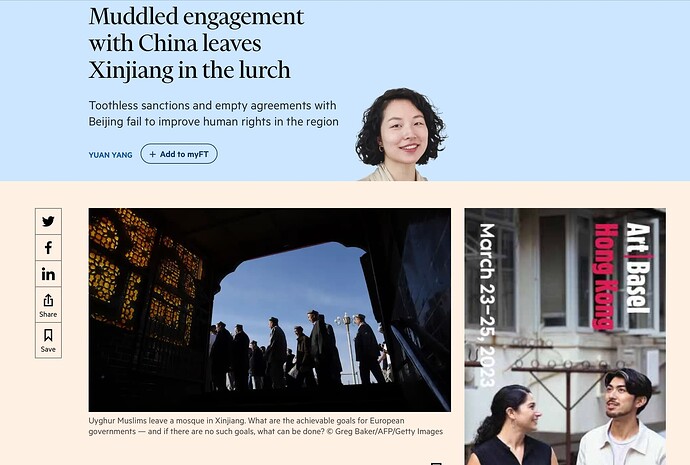-
欧洲与新疆的接触是有问题的,没有明确的目标或结果
-
接触是建立关系、相互理解和事实调查的需要,但在影响中国的人权政策方面可能并不有效。
-
批评和接触应以其结果来衡量,但在习近平的领导下,中国很可能把批评看作是一种黑白分明的标记朋友和敌人的做法。
-
针对国际媒体的报道,中国已经改变了一些策略,但自2005年以来,中国没有允许任何联合国特别报告员进入新疆。
-
如果能促使在该地区投资的外国公司进行游说,对其施加压力是有效的,而象征性的行动对声援维吾尔人也很重要
-
来自新疆的消息零零散散,凸显了外交策略的一个基本问题–有效的谈判需要传达行动要求,并辅以威胁或激励,以及核实行动的手段。
-
European engagement with Xinjiang is problematic, with no clear goals or outcomes
-
Engagement is required for relationship-building, mutual understanding and fact-finding but may not be effective in influencing China’s policies on human rights
-
Criticism and engagement should be measured by their results, but under Xi Jinping’s leadership, China is likely to see criticism as a black-and-white exercise in marking friends and foes
-
China has changed some of its tactics in response to international media coverage but has not given access to Xinjiang to any UN special rapporteurs since 2005
-
Pressure on foreign companies that invest in the region is effective if it can push them to lobby, and symbolic action is also important to show solidarity with Uyghurs
-
The patchiness of news from Xinjiang highlights a fundamental problem with diplomatic strategies - effective negotiation requires communicating a demand for action, backed up with a threat or incentive as well as a means of verifying the action.
